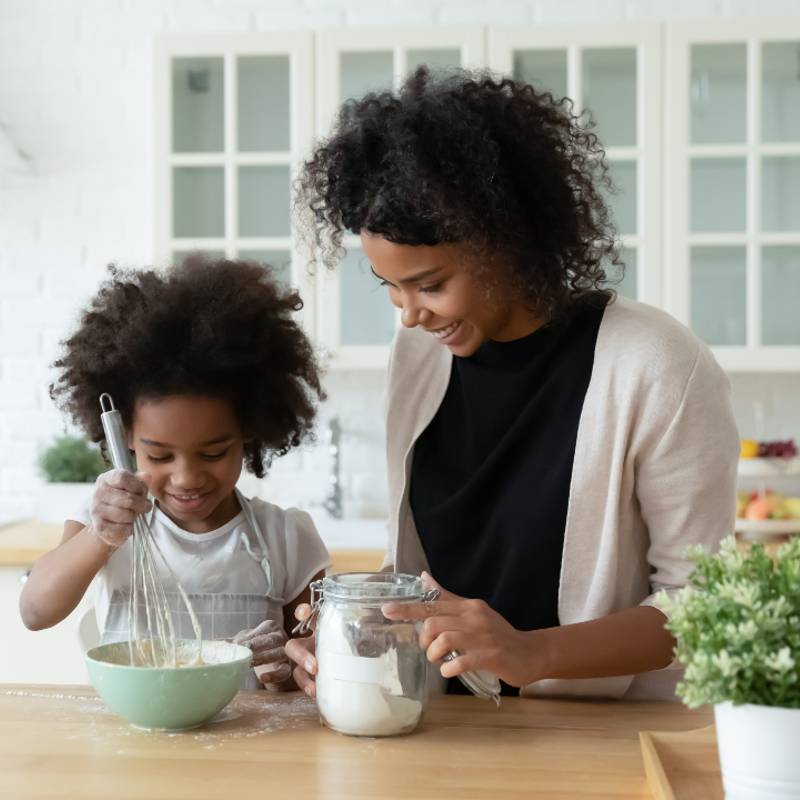Fires can start easily, spread quickly and destroy homes. But the vast majority of fires in the home are avoidable. You can help reduce the risk of a fire occurring in your home by taking the following precautions:
General fire safety
Following these tips will help reduce the chances of a fire breaking out in your home:
- • Unplug electronic devices: Heat-producing electronics such as mobile phone chargers, electronic blankets and hair-straighteners can catch fire if left unattended so should be turned off when not in use, especially at bedtime.
- • Blow out candles: Never leave a burning candle or incense unattended or near any flammable items such as blinds, curtains, wallpaper, bedsheets etc.
- • Carefully put out cigarettes: Avoid careless smoking, especially in bedrooms and living rooms, and ensure that all stubs are fully put out before leaving the room.
- • Keep matches away from children: Fire hazards including matches, lighters and fuel should be kept well out of the reach and line-of-sight of children.
- • Close doors: All doors in a home should be fully closed, especially when going to bed. This prevents fire and smoke from spreading around the house quickly.
Getting the most out of smoke detectors
While having smoke alarms in your house is a good start, you will need to do the following if they are to work properly and keep your home safe:
- • Install multiple smoke alarms: You should install at least two smoke detectors in your house – hallways and stairwells are the most important areas.
- • Connect smoke alarms: When one smoke alarm sounds, all should sound to alert all areas of the property.
- • Test smoke alarms once a month: Smoke detectors should be tested regularly to ensure that they are working properly.
- • Change smoke alarm batteries twice a year: You should change your smoke alarms’ batteries at least twice a year, even if they seem to be working.
Cooking safely
The kitchen is one of the areas with the most potential for a fire to break out, especially when cooking. Following this advice should help ensure a safe cooking environment:
- • Cook safely: Never leave any in use cooking utensils unattended.
- • Don’t leave open flames unattended: Chip pans and any cooking methods which use a lot of grease or an open flame are particularly prone to catching fire.
- • Take care around electrics: Don’t throw water on any oil or electrical based kitchen fires as this will only make it worse.
- • Putting out fires: Keep a fire blanket or fire extinguisher in close proximity to the cooking area for ease of use.
- • Barbeque tips: Never leave a barbeque unattended and make sure it’s only used in an open space. All flammables should be handled with care, if using a starter fluid, use only charcoal starter fluid. When you’re finished using your barbeque, make sure the coals are completely cooled before disposing of them in a metal container. Read our tips on How to BBQ Properly for a fun and safe BBQ party.
Home heating advice
As heating systems generate heat by definition, care needs to be taken with them in order to prevent fires from starting. Following these tips will help ensure a warm, safe household:
- • Seek professionals: All solid fuel stoves should be installed by a certified professional.
- • Take precautions: All fireplaces and heaters should have a secure fireguard. Never leave the room without having a guard in front of the fire.
- • Regular maintenance: All chimneys and/or flues to solid fuel stoves, boilers and open fires should be cleaned by a certified professional at least once a year. This will help to remove any debrisor residue which could potentially catch fire.
- • Be aware of flammables: Keep heaters away from flammable material such as blinds curtains and bedding.
- • Warning when refuelling: Never move or refuel an oil or gas heater while it is lighting.
- • Hot ashes: Make sure that hot ashes are completely cooled before disposing of them in a metal container. Hot ashes should never be disposed of in wheelie bins or other containers which could ignite.
Taking care around electrics
Electric wires and power supply points are another potential source of home-based fires. Care should be taken to ensure that you do the following:
- • Don’t overload power points: Do not overload any electrical points, sockets, adapters or extension leads with too many electrical items.
- • Unplug: When electrical appliances are not in use, unplug them.
- • Replace faulty wiring: Frayed leads and loose plugs should be replaced or have a certified electrician repair them.
- • Turn off before you leave: Do not leave ‘white goods’ appliances such as dryers, washing machines and dishwashers running if you are leaving your home or going to bed.
- • Check wires: Keep all electrical flexes off cooker rings and hobs.
- • Festive safety measures: During the festive season, be sure to turn off your Christmas lights when going to bed and when leaving a room unattended.
- • Tumble Dryers: Empty the lint tray of your tumble dryer after every use as this improves the dryer efficiency and reduces the chances of a fire. Make sure not to overload your dryer and allow the ‘cool down’ cycle to finish, to ensure any final heat is removed to help reduce the risk of hot clothes igniting.
